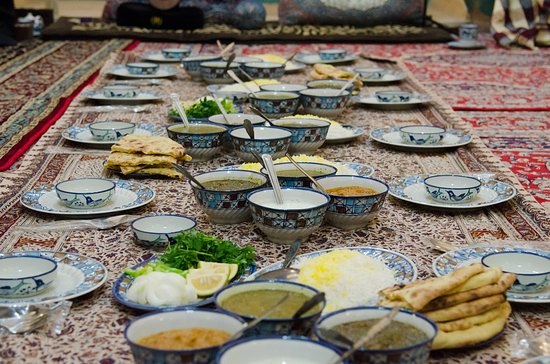The Heart and Soul of Persian Cooking: Ingredients and Traditions
Persian cuisine is more than just the food on the table - it’s a living tradition that bridges generations, creates connections, and celebrates life’s moments big and small. It’s a cuisine where every herb, spice, and dish has a purpose, not just for flavor but for well-being and storytelling.
At the heart of Persian cooking is a reverence for fresh herbs. Dill, parsley, mint, and fenugreek aren’t merely accents - they are the foundation of countless dishes. They bring a brightness to the plate and a sense of renewal to those who eat them. Beyond flavor, these herbs are steeped in a culture that values their healing properties. In Persian homes, mint tea calms an upset stomach, saffron tea soothes the soul, and fenugreek tea is a trusted remedy for balance and vitality. These practices are as much about care as they are about tradition, offering a sense of comfort that transcends the plate.

But Persian cuisine isn’t just about what’s cooked; it’s about how it’s shared. Meals are not solitary affairs but collective celebrations, often centered around a sofreh, a beautifully arranged cloth that holds not just the food but the essence of community. Everyone gathers around - whether sitting on the floor or at a long table - and dishes are passed, shared, and enjoyed together. This practice turns every meal into an act of connection, where food becomes the medium for conversation, laughter, and love.
What’s remarkable about Persian gatherings is the abundance. There’s always more food than needed, as though the act of cooking is itself a gesture of generosity. Surprise guests are always welcomed, and the belief that “there’s always enough to share” is deeply ingrained in Persian culture.
Dining in Iran is a sensory experience. Meals are often served late, with aromas of saffron, grilled meats, and fresh herbs filling the air. Once dinner is over, the table - or sofreh - is cleared, and the real joy begins: lively conversations, music, and shared stories. Persian weddings, too, embody this spirit. Guests arrive ready to celebrate, dancing begins immediately, and the food, served buffet-style, is devoured quickly so the festivities can continue late into the night.
Persian cuisine isn’t just about nourishment; it’s about the experience of being together. It’s food that tells the story of a culture where generosity and joy are served in every bite, where tradition is woven into every dish, and where the sofreh isn’t just a table - it’s a reflection of life itself.

